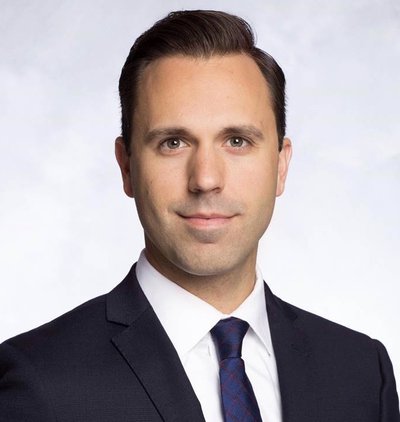28 Feb 2020
MILE Alumni Profiles: Jean-Philippe Herbert
MILE 17 graduate Jean-Philippe Herbert, a dispute settlement lawyer in the Legal Affairs division of the WTO in Geneva, began his career as a commercial litigator in Canada. In this interview, he talks about his professional journey and the benefits he gained from pursuing the MILE programme at the World Trade Institute.
Tell us about the work you are currently doing at the WTO
My job as a dispute settlement lawyer in the Legal Affairs Division involves assisting WTO panels and arbitrators in dispute settlement proceedings that fall under the responsibilities of the Legal Affairs Division. More concretely, this means that, when a WTO Member using the dispute settlement system claims that measures adopted by another Member are not compliant with WTO obligations, I assist adjudicators tasked with assessing those measures and the factual and legal basis of the complaint in light of the relevant agreements of the WTO.
Additional responsibilities include delivering technical assistance and trainings in Geneva and abroad on subjects within the Legal Affairs Division's areas of responsibility, and contributing to the development of training and research materials.
What did you do before the MILE, and what was your career path after you graduated?
I started my career as a commercial litigator in the Canadian civil courts at Borden Ladner Gervais LLP, a large Canadian firm. I was involved in business disputes arising in all kinds of industries and sectors, including securities and shareholder issues, construction projects, and class actions. Gradually, I was exposed to an increasing number of cross-border issues and disputes pertaining to WTO law, free trade agreements and investment treaties. My main field of focus was so-called investor-State dispute settlement proceedings – a mechanism by which an international agreement provides foreign investors with the right to access a tribunal to resolve investment disputes.
These experiences were truly revealing of the world of contentious matters, mostly, I think, by showing me the multiplicity of ways disputes can be resolved through advocacy, whether at the negotiating table or before judges or arbitrators.
This was the background that equipped me to join the MILE in September 2016. After completing the programme, I had the opportunity to immediately transition to the World Trade Organization (WTO). Since then, I have worked in each of the three legal divisions, namely the Appellate Body Secretariat, the Rules Division, and Legal Affairs Division.
How do you think the MILE helped you in your career?
The MILE was pivotal for me as a professional in many ways. For one, its ‘tri-disciplinary’ approach radiates in my career almost daily. Besides the valuable law courses it offers, the MILE has endowed me with a level of literacy in trade economics and political science that I did not previously have. Understanding these related disciplines plays an essential part in having informed discussions about global trade issues. WTO disputes often raise economic issues, and the resolution of those disputes can require an understanding of the underlying economic issues and a reliance on economic analyses. Although economist colleagues conduct those analyses, it is rewarding to understand the underlying phenomena and be able to discuss their implications for the dispute overall.
Another great aspect of the MILE is the rewarding relationships it allowed me to make. I think that from the hundreds of hours of groupwork I developed new abilities to engage with colleagues in cross-cultural settings. Significantly, too, I forged meaningful connections with many like-minded students and lecturers. Some are today among my circle of closest friends and mentors, who I count on for valued advice or to simply exchange thoughts about the intricacies of the world!
Lastly, there were times when the MILE programme was quite demanding, especially in terms of the writing output it required from students. But I believe that those high expectations sharpened our aptitudes in ways that helped our careers. Through sustained practice, we learned to resolve problems under strict time and resource constraints, and to produce fit-for-purpose analyses. I view this as a valuable return on investment whenever shorter deadlines or unusually intense workloads arise in my current work.
Any advice for current students?
My personal suggestion would be to keep an open mind about what the WTI can offer you, and to work hard to get what you want.
The WTI presents an array of opportunities to students, ranging from the chance to learn from world-class experts, develop lifelong friendships, grow as a person and professional, follow promising job leads, and explore Bern and Switzerland. The difficulty, I believe, lies in channelling your energies as optimally as possible into those areas that interest you the most, although you do not know in advance what encounters and opportunities will arise. Chance favours the prepared, but an open mind is a necessity when dealing with a level of randomness.
Further info
Herbert, Jean-Philippe
MILE Alumni Profiles series


